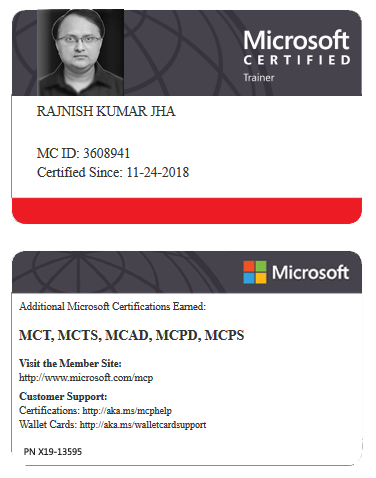What Is Azure Private Link?
Azure Private Link provides secure, private connectivity from your Azure Virtual Network (VNet) to Azure services (e.g., Azure Storage, Azure SQL Database) or your own services hosted in Azure.
Unlike Azure Service Endpoints, Private Link assigns a private IP address from your VNet to the service, ensuring that traffic never leaves the Azure backbone network.
Key Features of Azure Private Link
1. Private Connectivity
Services are accessed using a private IP address within your VNet, ensuring traffic stays on the Azure backbone.
2. Granular Resource Access
Connectivity is at the resource level (e.g., a specific storage account), offering fine-grained control.
3. Supports On-Premises Access
Private Link integrates with VPN or ExpressRoute, allowing private access from on-premises networks.
4. Cross-Region Support
Enables secure connectivity to services across Azure regions.
5. Simplified DNS Management
Private Link supports DNS zones to manage name resolution for private endpoints.
Key Components of Azure Private Link
1. Private Endpoint
A network interface that connects your VNet to a service using a private IP from your VNet's address space.
2. Private Link Service
Your custom service (e.g., an application behind a standard load balancer) that you can expose privately to VNets or on-premises networks.
3. DNS Configuration
Ensures that service requests resolve to the private IP address of the private endpoint.
How Azure Private Link Works
When you create a Private Endpoint in your VNet for an Azure service:
A private IP is assigned from the subnet in your VNet.
Traffic to the service is routed through the Private Endpoint, ensuring no public internet exposure.
Access to the service is controlled through network policies and the service's firewall settings.
Supported Azure Services
Private Link supports many Azure services, including:
Azure Storage (Blob, File, Queue, Table)
Azure SQL Database
Azure Key Vault
Azure Cosmos DB
Azure App Service
Azure Data Lake Storage
Azure Event Hub
Azure Monitor
Azure Search
Custom Private Link Services (e.g., your own applications).
Steps to Configure Azure Private Link
Step 1: Create a Private Endpoint
1. Navigate to the Azure Portal
Go to the Azure resource (e.g., a Storage Account).
2. Create a Private Endpoint
Under Networking, select Private Endpoint connections → + Private Endpoint.
Provide details such as:
Resource group: Choose an appropriate group.
Name: Enter a name for the private endpoint.
Region: Select the region (must match the resource's region).
Resource type and name: Select the service you want to connect to.
VNet and subnet: Choose the VNet and subnet where the private endpoint will reside.
3. DNS Configuration
Use Azure Private DNS Zones for automatic name resolution.
Alternatively, configure a custom DNS setup.
Step 2: Configure Service Firewall/Access Policies
Go to the Azure service (e.g., Storage Account).
Configure the firewall settings:
Select Private endpoint connections only to restrict access.
Add the private endpoint to the allowed list.
Step 3: Validate the Setup
Deploy a VM in the same VNet or a connected on-premises network.
Test connectivity to the service using its private IP or DNS name.
Confirm that public access is blocked by disabling public network access on the service.
Example: Private Link for Azure Storage
Scenario
You want to securely connect to an Azure Storage Account (mystorageaccount) from a VNet (MyVNet) without exposing the storage account to the public internet.
1. Create a Private Endpoint
Go to
mystorageaccount→ Networking → Private Endpoint connections → Add.Select
MyVNetand its subnet.Enable integration with a Private DNS Zone (e.g.,
privatelink.blob.core.windows.net).
2. Restrict Storage Access
Under
mystorageaccount→ Networking → Firewalls, set access to Private Endpoint only.
3. Test
Access the storage account from a VM in
MyVNet. Public internet access will be blocked.
Azure Private Link vs Service Endpoints
| Feature | Private Link | Service Endpoints |
|---|---|---|
| Traffic Path | Private IP in your VNet; no public exposure. | Uses Azure backbone but retains a public endpoint. |
| Scope | Resource-level (specific service instance). | Subnet-level (entire service type). |
| On-Premises Access | Supported via private IPs (VPN/ExpressRoute). | Not supported. |
| Cross-Region Access | Supported. | Not supported. |
| Use Case | Isolated, resource-specific private access. | Simpler setup for regional VNet service access. |
Advantages of Azure Private Link
1. Security
Resources are accessible only via private IPs, removing the need for public endpoints.
2. Flexibility
Can connect to Azure services, your own services, or services in other VNets.
3. Integration with On-Premises
Seamless access from on-premises through VPN or ExpressRoute.
4. Granular Control
Resource-level access ensures that only specific instances are exposed.
Considerations for Azure Private Link
1. Cost
Private Link incurs additional charges for the private endpoint and data transfer.
2. DNS Management
Requires proper DNS setup to ensure traffic is routed to the private endpoint.
3. VNet Dependency
Resources accessed through Private Link must connect via the associated VNet or peered VNets.
Use Cases for Azure Private Link
1. Secure Storage Access
Securely connect VMs, App Services, or on-premises networks to Azure Storage without public internet.
2. Database Isolation
Provide private access to Azure SQL Database or Cosmos DB for applications in VNets.
3. Custom Private Services
Expose your own service privately to customers or internal VNets.
4. Multi-Region Architecture
Enable private connectivity across Azure regions.
Summary
Azure Private Link is a powerful tool for securing Azure services and custom applications.
By providing private connectivity with resource-level granularity, it ensures higher security and flexibility compared to Service Endpoints.
It is particularly suitable for scenarios requiring private access from on-premises networks or cross-region setups.




















Leave a Reply